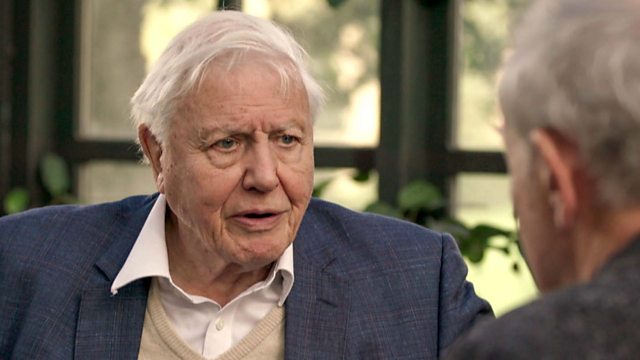
The Chambers of the Mind
Simon explores how the romantics became the first intrepid explorers of dark recesses of the human mind, long before the modern psychological revolution. With contributions from Sir David Attenborough
With contributions from Tobias Menzies, Peter Doherty, Piotr Anderszewski and Sir David Attenborough, Simon tells the story of how the romantics - fuelled by the failures of the French Revolution and horrors of the industrial revolution – retreated from the tragic uproar of public life to take a journey into their own minds. Here, long before the invention of modern psychology, they discovered the subconscious, something that would have a profound effect on our modern world.
The film starts with the story of one of France’s most celebrated novelists and poets, Victor Hugo. After falling foul of the French emperor, Louis Napoleon, Hugo fled to the island of Guernsey. Here, he created some of the most haunting images of the romantic age, thousands of drawings plucked from his restless, melancholy mind.
Long before Sigmund Freud and the invention of modern psychoanalysis, it is often forgotten that it was the romantics who became the first intrepid explorers of the deepest, darkest corners of the human mind. At the Fitzwilliam Museum in Cambridge, Simon traces the origins of this revolution to the prints of Giambattista Piranesi. His series of Imaginary Prisons are the first images of the inner visions of the mind, and they have had a long-lasting influence in our modern world - not least in modern cinema.
Among those inspired by Piranesi's images was poet Samuel Taylor Coleridge and, later, one of his disciples, journalist, writer and wannabe-poet Thomas de Quincey. Both of them used opium to open up ‘the apocalypse of the world within’. Simon tells the story of how both artists changed the way we think about the human mind.
Simon then looks at how the romantics changed the way we think about madness. In their craving for deeper experiences, very few romantics - at one stage or other - didn’t think they were going mad.
One, however, found a way to avoid the fate of so many his colleagues and friends: William Wordsworth. He was equally interested in the mapping and exploration of his own mind, but he also realised that it was by attaching it to something bigger that he could escape the irrational forces of darkness and self-obsession that threatened to overwhelm him. Meeting Sir David Attenborough, who also reads lines from Tintern Abbey and Wordsworth’s The Tables Turned, Simon asks whether we need to heed the lessons of the romantics before it is too late.
Last on
Music Played
Timings (where shown) are from the start of the programme in hours and minutes
-
![]() 00:16
00:16Nick Drake
Cello Song
-
![]() 00:18
00:18Sigur Rós
Ba Ba
-
![]() 00:21
00:21A Winged Victory for the Sullen
Atomos XI
-
![]() 00:23
00:23A Winged Victory For The Sulle
Atomos IX
-
![]() 00:52
00:52Agnes Obel
Familiar
Credits
| Role | Contributor |
|---|---|
| Presenter | Simon Schama |
| Director | Hugo Macgregor |
| Producer | Melanie Fall |
| Producer | Nicolas Kent |
| Producer | Charlotte Sacher |
| Production Company | Oxford Film and Television |
Broadcasts
- Fri 18 Sep 2020 21:00
- Fri 9 Oct 2020 00:30
- Mon 21 Feb 2022 21:00
- Tue 22 Feb 2022 02:30

